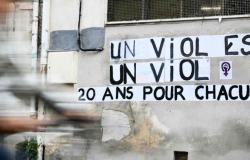Conversely, Israel only needed 31% to create three big chances, including this goal in the final moments.
Against Italy, in a more balanced encounter, the Devils had 47% of the ball, for eleven shots, including three on target. Arne Engels, the most offensive element of the middle triangle last Sunday and Thursday, did not make a single pass leading to a teammate’s shot in two games. And he himself only struck twice on goal, failing to score. Too dull a record for the Celtic player.
2.5 expected goals, 0 scored
Despite a lot of possession, on Sunday, the number of “expected goals” for the Devils was only 1.45. The last time Tedesco players had an “Expected Goal” (XG) greater than 1 while remaining silent? Against Slovakia, at the Euro… where this number of XG was down to 2.46, for a 1-0 defeat, there too.
Against the Squadra Azzurra, where the Devils spent a half suffering before waking up in the second half, the expected goals were only 0.86. Two very low totals, with or without Lukaku.
219 bullet losses
110: this is, again according to Wyscout, the number of balls lost by the Devils on Sunday evening. A figure which illustrates the technical approximation of the players and which is, here, a record since March 2024 and the soporific 0-0 against Ireland. But we can extend the observation to the first match of this gathering, since, already, with 109 turnovers against Italy last Thursday, we will have experienced a peak of almost over these two matches, which also illustrates the qualitative gap between the regulars – there were “only” 69 balls lost against France, in the round of 16 of the Euro – and this team, made up of numerous substitutes… substitutes.
Loïs Openda and Timothy Castagne have, with 15 lost balls each, the highest total of Sunday’s meeting in this category.
But all was not dark. If the Devils lost a lot of balls, they also recovered a record total of 90.
Not smart enough
With ample possession on Sunday, the number of passes is logically enormous, on the Belgian side: 634 over the 98 minutes played. And the accuracy rate is pretty decent: 89%. But when we dig deeper and look deeper and deeper, we see that there were only 15% “progressive passes” (93) and, above all, only three “clever passes” (smart passes), a term which refers to creative passes allowing you to break a line and create danger in the opposing defense. Three is far too few in a match dominated like this.
Against Italy last Thursday, there had already been only two attempts… and only one had reached its destination. We suspected it, but we have confirmation: Kevin De Bruyne was sorely missed to shed light on the meeting of his genius.
On the left, the struggle
Already against Italy, the Belgian left side suffered: the twelve transalpine attacks coming from this side alone created 1.31 XG out of a total of 1.57.
Rebelote on Sunday evening, even if De Cuyper was replaced by Castagne and Theate, by Debast and even if the Belgian playing system was different. 45% of the Israeli danger came from the Belgian left side, again, compared to 1% from the right side (and almost 55% in the center, therefore). This relates to the opposing qualities, but also to the Belgian weaknesses.
The limited defensive work of a diminished Trossard should not have helped (9 duels played, only three won). Bakayoko, who replaced him, did some things, but didn’t particularly shine defensively either.







